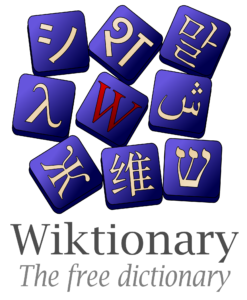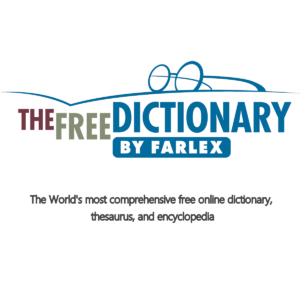Introduction
In the digital era, information is at our fingertips, and the concept of ‘free’ has taken on new dimensions. Wiktionary, the free dictionary, stands as a testament to the power of collective knowledge-sharing.
This article delves into the intricacies of Wiktionary, its mission, and how it redefines the notion of ‘free’ in the realm of language.
Table of Contents
- Understanding Wiktionary
- 1.1. Definition and Purpose
- 1.2. The Wikimedia Foundation
- 1.3. Collaborative Editing
- The Free in Wiktionary
- 2.1. Open Access to Knowledge
- 2.2. Creative Commons License
- 2.3. Public Domain Contributions
- Contributing to Wiktionary
- 3.1. How to Contribute
- 3.2. Community Guidelines
- 3.3. Quality Assurance
- FAQs about Wiktionary
- 4.1. How Accurate is Wiktionary?
- 4.2. Is Wiktionary Reliable for Academic Research?
- 4.3. How Does Wiktionary Ensure Quality Control?
- 4.4. Are Entries in Multiple Languages Available?
- Impact and Significance
- 5.1. Wiktionary in Education
- 5.2. Multilingual Communication
- 5.3. Accessibility and Inclusivity

- Challenges and Controversies
- 6.1. Vandalism and Edit Wars
- 6.2. Linguistic Biases
- 6.3. Copyright Infringement Concerns
- Future of Wiktionary
- 7.1. Technological Advancements
- 7.2. Growing Language Repositories
- 7.3. Expanding User Base
Understanding Wiktionary
1.1. Definition and Purpose
Wiktionary is a collaborative online dictionary that aims to catalog and define all words in all languages. It’s part of the Wikimedia Foundation, the same organization behind Wikipedia, and is driven by a global community of volunteers.
1.2. The Wikimedia Foundation
The Wikimedia Foundation is a non-profit organization dedicated to promoting free access to knowledge. It operates several projects, including Wikipedia, Wiktionary, Wikimedia Commons, and more.
1.3. Collaborative Editing
One of Wiktionary’s distinguishing features is its open editing model. Anyone with internet access can edit or contribute to entries, fostering a community-driven approach to language documentation.
The Free in Wiktionary
2.1. Open Access to Knowledge
Wiktionary embraces the concept of ‘free’ by providing unfettered access to a wealth of linguistic information. This democratization of knowledge empowers individuals worldwide.
2.2. Creative Commons License
All content on Wiktionary is licensed under the Creative Commons Attribution-ShareAlike license, which allows for reuse and distribution of the material under certain conditions.
2.3. Public Domain Contributions
Some entries on Wiktionary fall into the public domain, meaning they are not subject to copyright restrictions and can be freely used by anyone.
Contributing to Wiktionary
3.1. How to Contribute
Contributing to Wiktionary is straightforward. Users can create accounts and start editing immediately, following the community’s guidelines.
3.2. Community Guidelines
To maintain quality and accuracy, Wiktionary has a set of guidelines and policies that contributors are encouraged to follow. These cover everything from sourcing information to formatting entries.

3.3. Quality Assurance
Wiktionary employs a system of checks and balances, including peer review and discussion, to ensure the accuracy and reliability of its entries.
FAQs
4.1. How Accurate is Wiktionary?
Wiktionary’s accuracy varies depending on the entry and the diligence of its contributors. While many entries are highly reliable, users are encouraged to cross-reference information for critical applications.
4.2. Is Wiktionary Reliable for Academic Research?
While Wiktionary can be a valuable starting point for research, it is generally not considered a primary academic source. It is advisable to consult scholarly dictionaries for rigorous academic work.
4.3. How Does Wiktionary Ensure Quality Control?
Quality control on Wiktionary is maintained through a combination of community vigilance, discussion pages, and periodic reviews by experienced editors.
4.4. Are Entries in Multiple Languages Available?
Yes, Wiktionary is a multilingual platform, offering definitions and translations in a vast array of languages, reflecting the global nature of the user base.
Impact and Significance
5.1. Wiktionary in Education
Wiktionary is a valuable resource for language learners, providing accessible definitions and translations in multiple languages.
5.2. Multilingual Communication
It facilitates communication across linguistic boundaries, allowing individuals to understand and connect with diverse cultures and communities.
5.3. Accessibility and Inclusivity
By being freely accessible on the internet, Wiktionary breaks down barriers to information, making it an inclusive resource for people from all walks of life.
Challenges and Controversies
6.1. Vandalism and Edit Wars
Like any open platform, Wiktionary faces challenges related to vandalism and disagreements among contributors. However, the community actively works to address these issues.
6.2. Linguistic Biases
Wiktionary’s content may inadvertently reflect biases in the languages and cultures of its contributors. Efforts are made to rectify these biases through community discussion and guidelines.
6.3. Copyright Infringement Concerns
While Wiktionary strives to respect copyright, occasional disputes may arise. The community actively addresses these issues through legal consultations and respectful discourse.
Future of Wiktionary
7.1. Technological Advancements
As technology evolves, Wiktionary will likely incorporate new tools and features to enhance user experience and content quality.
7.2. Growing Language Repositories
With increasing global connectivity, Wiktionary is poised to expand its coverage of lesser-known and endangered languages, preserving them for future generations.
7.3. Expanding User Base
As awareness of Wiktionary grows, it is likely to attract an even broader community of contributors, further enriching its content and linguistic diversity.
Conclusion
Wiktionary, the free dictionary, embodies the spirit of open knowledge sharing. It empowers individuals to explore the vastness of language, transcending borders and barriers. As it continues to evolve, Wiktionary remains a beacon of free access to the world of words, enriching lives and fostering global understanding.